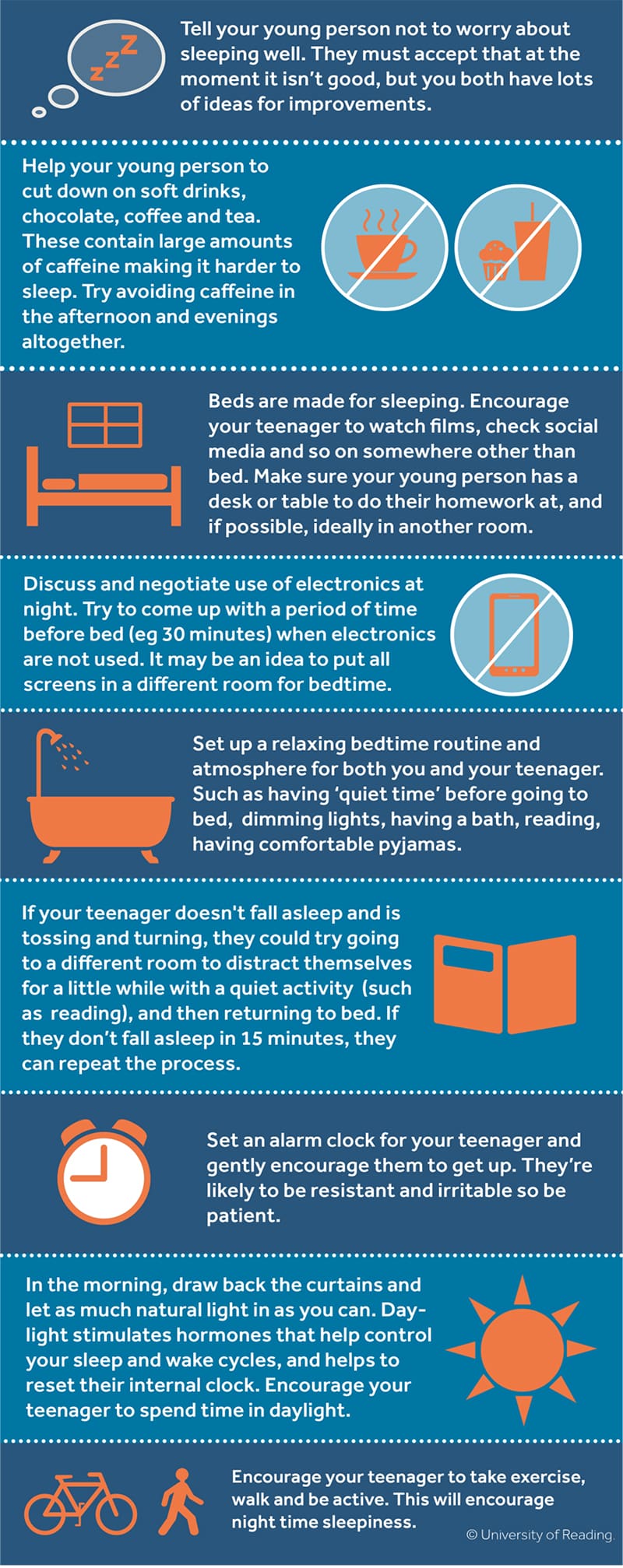Poor quality of sleep affects everyone’s mental health – and teenagers will find it even more challenging to cope with a lack of sleep.

Photo by Milan Gaziev on Unsplash
We all know ourselves how much more challenging our day is when we have had a disrupted night’s sleep. We can manage on one bad night’s sleep, however, when we continuously do not get enough sleep, we lose focus, concentration and tend to feel irritated.
The NHS recommends 8–10 hours’ sleep for teenagers. This can be difficult to achieve as teenagers’ sleep patterns change as they become adults, but it is important to remember that lack of sleep is a main contributor to feelings of stress, anxiety and low mood.
10 Rules for Improved Sleep Hygiene
If you have problems sleeping, then it is important that you practise good sleep hygiene. This means doing things which are known to improve sleep and avoiding those things which are known to disturb sleep. Here are 10 things you should know about getting better sleep; each of these points is based on scientific research and could help you to get the most out of your sleep.
Remember, this advice applies only if you have a sleep problem:
- Products containing caffeine (tea, coffee, cocoa, chocolate, soft drinks, etc) should be discontinued at least 4 hours before bedtime. Caffeine is a stimulant and can keep you awake.
- Avoid nicotine (including nicotine patches or chewing gum, etc) an hour before bedtime and when waking at night. Nicotine is also a stimulant.
- Avoid alcohol around bedtime because, although it can promote sleep at first, it can disrupt sleep later in the night.
- Avoid eating a large meal immediately before bedtime, although a light snack may be beneficial.
- Try to do regular (even mild) physical exercise if you are able but avoid doing this in the 2 hours before bedtime.
- Keep the bedroom calm and tidy. Choose a mattress, sheets, and pillows that are comfortable.
- Avoid making your bedroom too hot or cold.
- Keep the bedroom quiet and dark during the night but try to spend some time in daylight (or bright artificial light) during the day.
- Keep your bedroom mainly for sleeping, ie try to avoid watching television, listening to the radio, or eating in your bedroom.
- Try to keep regular times for going to bed and getting up.
Useful guidance about sleep…
Below are some useful resources for you to use with teenagers…
- Click here for NHS Sleep Tips for Teenagers>>
- The NHS also recommends keeping a sleep diary – download an example here>>
- This guide to sleep by University of Reading is especially useful – you can download a copy by clicking on the image or in the download link here>>





